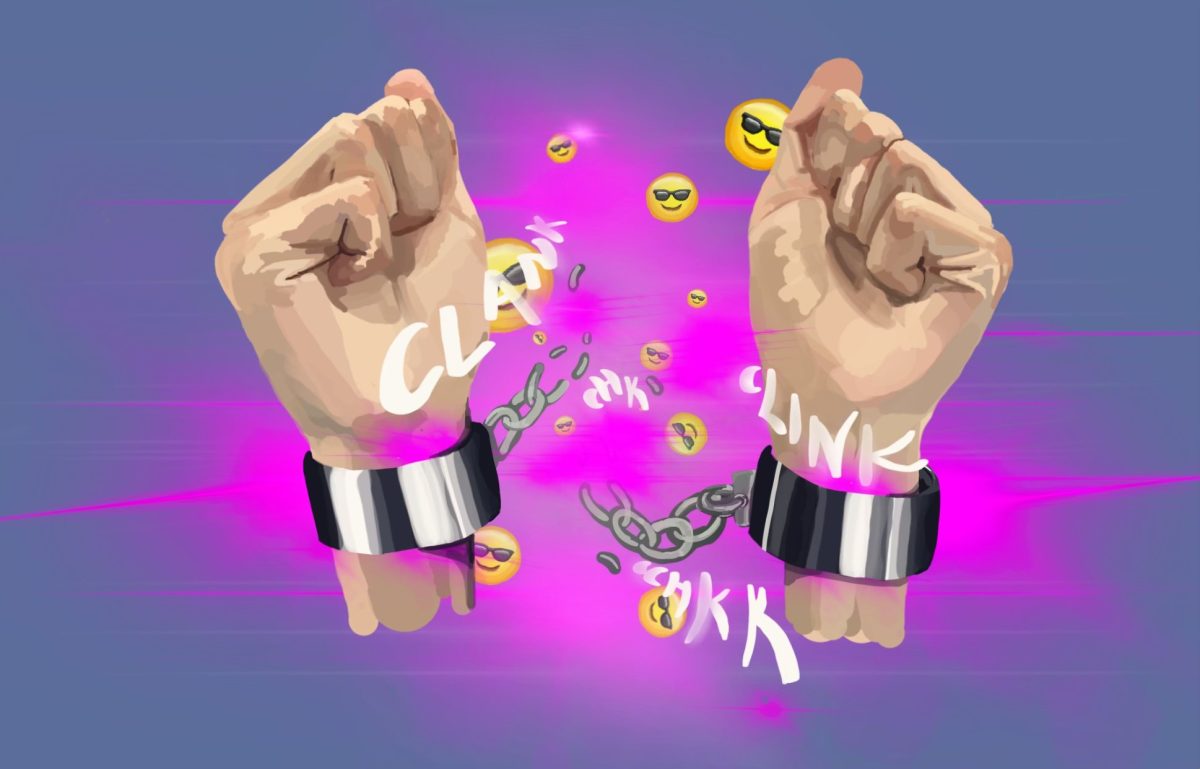In the days leading up to the Institute of Politics (IOP) event with former Donald Trump campaign manager Corey Lewandowski, colorful posters were plastered around campus prominently declaring: “BIGOTRY is NOT NORMAL.” The posters urged Chicago residents to join the group UofC Resists in protesting the “normalization of bigotry” that presumably comes with Lewandowski’s presence on campus.
The event and protest have already garnered a lot of attention. (For a thoughtful read on the merits of the protest, check out Ashton Hashemipour’s recent op-ed.) That said, the basic premise of the messaging for the protest—that bigotry is not normal—is not only ineffective, it’s ahistorical. And I worry that this type of messaging is becoming the dominant one in liberal, anti-Trump circles—of which, I should say, I am a part.
The simple—and shameful—fact is that bigotry is normal. It is what drove Trump, in no small part, to the White House on November 8, and it has characterized much of the history of our nation. The most recent election cycle removed the varnish that has put a shiny gloss on the otherwise ugly dog-whistle politics that have been around since the founding of this country. But this turn toward much more explicit language on matters of race, religion, nationality, sexuality, and gender should not delude us into thinking that it simply didn’t exist before.
To pretend that the bigotry epitomized by the Trump administration is somehow new in American politics ignores the experience of millions of Americans who have dealt with the effects of systematic bias for decades. Just because much of white America is now confronted with atypically overt displays of bigotry does not mean it is nascent. This intolerance has ensnared racial, ethnic, and religious minorities in unacceptable situations for longer than any of us has been alive. And this prejudice has put invisible hurdles in the paths of those seeking to break barriers, just as the sexism that was pervasive throughout Hillary Clinton’s run exemplifies.
It is true that having white nationalists like Steve Bannon and Stephen Miller in the President’s inner orbit is a jarring departure from political norms of the last few decades. But making “bigotry is not normal” our chief means of expressing well-deserved outrage over this reality does little to progress our cause and gain support from the very people we need to win over.
I want to be clear: the Democratic Party and all those opposed to Trump should continue to fight for equality for people of all stripes and colors. We must stand in stark opposition to the offensive words and policies coming out of the highest echelons of our government. In fact, we should redouble our commitment to fighting intolerance and injustice, as our party has a far from perfect record on these issues.
The unfortunate reality we must come to grips with, however, is that expressing anger over the breaking of precedent and offensive rhetoric and policies coming from this administration is fairly ineffective.
Outrage is certainly an understandable reaction to Trump. How could anyone vote for a man who bragged about sexual assault and said an American judge couldn’t do his job because of his Mexican descent?
My guess is that this question will continue to elude a lot of us in the years to come. But I think we would be wise to understand the sentiment expressed by noted disseminator of untruths Kellyanne Conway (and yes, I understand the irony of such a statement). She has said on several occasions that, “There's a difference to voters between what offends you and what affects you.”
In an ideal world, Americans would vote for candidates based on what both affects them and what is offensive to and affects others. Unfortunately, however, that is not the world in which we live. I often worry that the great failure of the left may be in our unabating proclivity to overestimate the fundamental goodness and empathy of fellow human beings.
We should be outraged. But we cannot fail to learn the lessons of last November. We cannot let our well-deserved anger and horror over the shattering of important norms get the better of our efforts to win over those who are no fans of Trump but feel they have no place to turn to.
This does not, in any way, mean we cede command of issues of equality and justice. While maintaining our steadfast commitment to fighting intolerance and injustice, liberals should cut back on our public airing of outrage on matters that, as Kellyanne Conway says, offend people. A sizable swath of the American electorate reviles this kind of messaging, as they think it embodies a holier-than-thou attitude. Unfair as the criticism may be, we can’t discount its relevance to many voters.
We should, instead, focus our efforts on talking about how Trump’s appointment of Goldman Sachs executives to his cabinet puts the very elite he ran against ahead of the American people. We should talk about how his chaotic White House is failing to bring back the jobs he promised so many. We should point out that every minute he spends tweeting about himself—or weekending at Mar-a-Lago—is a minute wasted not working on the issues that matter in people’s lives. And we should talk about how Trump and his children are profiting off the presidency, just as grave questions about his campaign’s ties to Russia are, hopefully, being investigated.
I commend UofC Resists for its vigorous advocacy and efforts. Too often those in the arena are the brunt of the criticism, while those on the sidelines slip by unscathed. We need as many people fighting this administration’s appalling words and policies as possible. I simply hope that, as liberals, we can maximize the impact of our energy and messaging. We’ll continue to go high as the Republicans go low. But let’s also focus on the issues that will get us back into power in 2018 and beyond. Only then will we truly be able to affect the change we seek.
Dylan Stafford is a first-year in the College.







